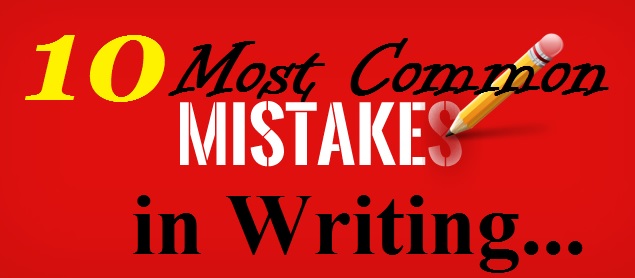We are all guilty of using crutch words and common misspellings but some mistakes are made over, and over again by many of us, regardless of correction or laziness. Are you one of the members of the guilty party?
Mistake number 1
WHO or WHICH
WHO refers to a person/persons/people and WHICH refers to things/animals but never to a person.
The girl who was always late for class was chastised often.
The dog, which ate the boy’s homework, was punished.
**And replacing it with that doesn’t make it right either.
Mistake number 2
Commonly misspelled words:
SEPARATE
DEPENDABLE
RECOMMEND
ALL RIGHT – this one especially, there is no such word as alright.
RESPONSIBLE
INDEPENDENT
Mistake number 3
ITS, IT’S, and ITS’
First of all…there is no ITS’, none, nada, never!
ITS is the possessive form of IT.
Every dog has its day.
IT’S is the contraction for IT IS or IT HAS.
It’s raining outside. It’s been a wonderful day.
Mistake number 4
EMPTY ADVERBS
First a definition of adverb for those who don’t know what it is.
Adverbs are used to modify verbs. They tell us when, where, how, in what manner, or to what extent an action is performed. In most cases, adverbs are one word but they can also be adverbial phrases.
Empty adverbs are those adverbs, which are unnecessary, and tend to be overused as filler and can be seen as redundant. Examples:
ACTUALLY / BASICALLY / COMPLETELY / CONSTANTLY LARGELY / LITERALLY / SERIOUSLY / TOTALLY / INCREDIBLY
UNUSUALLY / VERY / REALLY / FINALLY / ABSOLUTELY /
and many more.
It doesn’t mean these cannot or should not be used but instead, used sparingly and only when the action needs bolder, more urgent emphasis.
The ship was filling with water and the reality of death was becoming a seriously incredible possibility.
Mistake number 5
THERE, THEIR, and THEY’RE
Their is a possessive form of they.
They’re is a contraction of they are.
There is used to signify a place, or as an empty word to start a sentence.
Their goals were lofty.
They’re hungry after playing the game.
There are seven days in a week.
Mistake number 6
LOOSE vs LOSE
A very common mistake.
Lose means you have lost something
Loose refers to a certain fit.
If your shoes are too loose, you might lose them running for the train.
Mistake number 7
SITE AND SIGHT
Sight refers to your sense of vision.
Site refers to a location or place.
The sight of children playing together always brings a smile.
Before it shut down, that history site was one of my favorites.
Mistake number 8
THE APOSTROPHE
For the most part, there are only two reasons to use an apostrophe.
One…for contraction as in don’t for do not.
Two…to show possession as in Dave’s house.
If ever you are in doubt as to whether or not to use an apostrophe…just say no, and leave it OUT.
Mistake number 9
THE SEMI-COLON
What is a semi-colon? A semi-colon is part comma and part period. In non-fiction, it works well as a strong comma but in fiction, it tends to act as a weak period.
In fiction, it can halt or block the flow of the text, whereas in non-fiction, it helps break up long explanations, which in another world be called run-on.
Ideally, we don’t want run-on sentences in either type of writing but most definitely not in fiction.
A semi-colon should never, ever be used in place of a colon.
The child appeared to be healthy; however, the doctor chose to wait.
Mistake number 10
THE ELLIPSE
Ellipses are not just random dots in punctuation. It has specific uses and is always created by using THREE consecutive dots with no spaces before or after. ONLY 3!
Use an ellipse when there is an intentional omission of words or as a pause in speech or thought, but do not overuse. Although, to be honest, I’d rather see them used more often than semi-colons if it’s fiction.
“You over there…yes, you,” he called across the field.
The man had attempted to scale the wall twice…falling wasn’t his plan.
And there you have them…the Ten Most Common Mistakes in Writing. Trust me, there are many more but if you can master these, your writing will improve hugely.
Is there anything you’re not sure of but are too afraid to ask? Feel free to ask. Advice is always free.
Happy Writing Everyone!

Happy Anniversary!!! ❤
LikeLike
Thank you very much. I’m very proud today and of my awesome clients. Thank you, Kezia. ❤
LikeLike